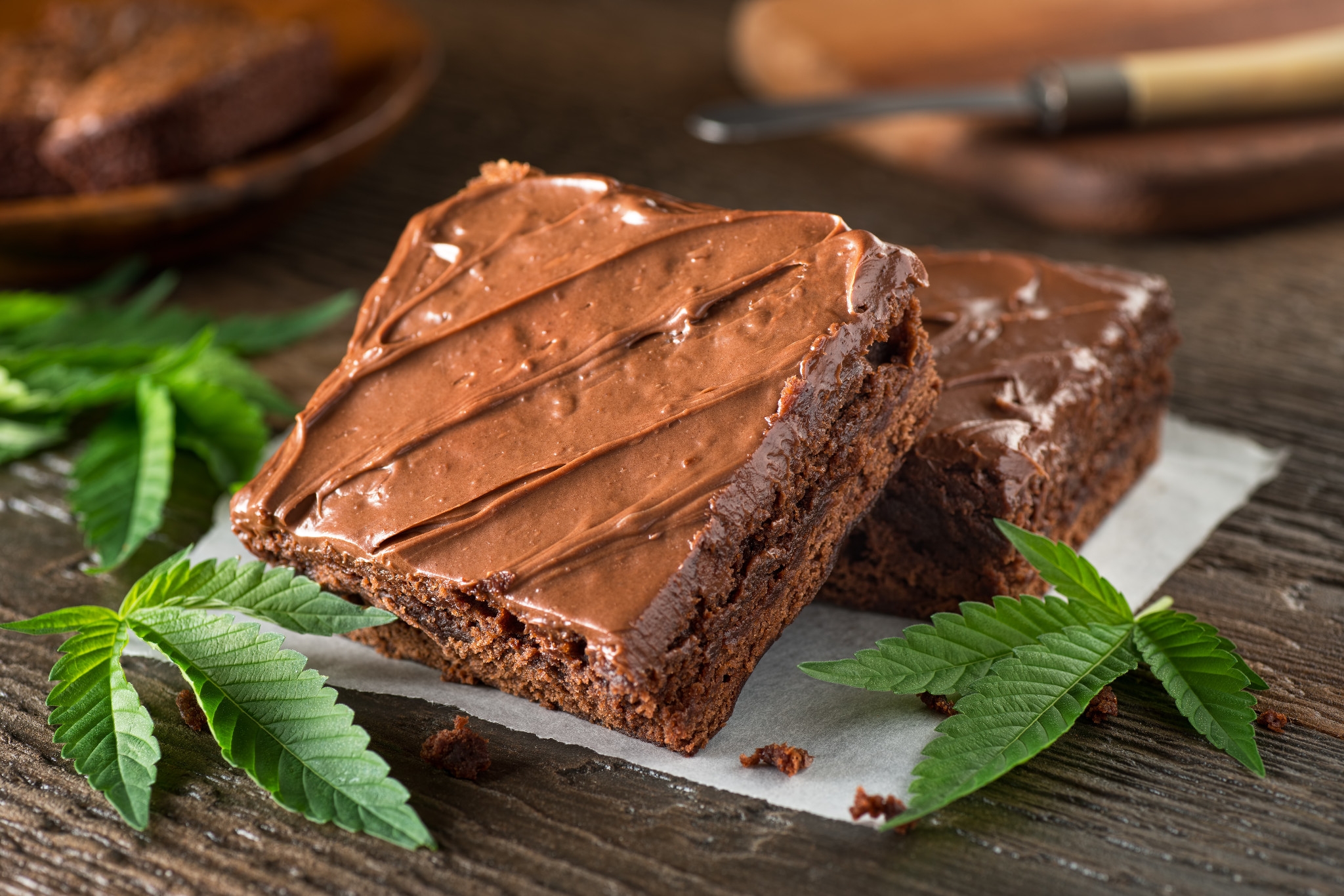INDIANAPOLIS -- Researchers have conducted a study in which mice voluntarily ate a dough containing THC, the primary psychoactive component in marijuana. That opens the door to additional studies that will help shed light on behavioral and physiological effects that occur in people when they eat food infused with marijuana.
The study is among the first to report on voluntary oral THC consumption in animals, a method of consumption that is similar to the way humans take the drug.
 |
Researchers want to know how consuming marijuana edibles like these marijuana-infused brownies impacts people's health. | Photo by Getty Images |
In a recently published paper in ScienceDirect, researchers at IUPUI and Indiana University Bloomington said they found the mice were less active, and their body temperatures were lower, after consuming the edible THC. The researchers also noted that the effects of edible THC varied based on the subject's sex, said Michael Smoker, first author of the paper and an addiction neuroscience Ph.D. candidate in the lab of professor Stephen Boehm in the psychology department at IUPUI. The addiction neuroscience graduate program is a Purdue University program at IUPUI.
The study showed that mice will self-administer -- or voluntarily choose to consume -- behavioral-effective doses of edible THC, and do so repeatedly, Smoker said. The mice were given gradually increasing doses in a dough made from flour, sugar, salt, glycerol and THC.
Understanding the health effects of eating marijuana edibles is important, given the growing popularity of that method of consumption in states where marijuana has been legalized, Smoker said.
"People can buy cookies, candies and all sorts of things with THC in them. Back in the day, you had to make your own brownies, or something like that, and now they are becoming more widely available and increasing in popularity," he said.
Marijuana edibles can elicit extreme, adverse reactions, Smoker said. Many of the commercially made marijuana-based products have a relatively higher concentration of THC than does marijuana plant material. In some cases, people are unsure how much of a marijuana edible they should eat and end up eating more than they should.
Questions researchers want to answer include the impact of edibles on people's ability to think, whether there are any long-term consequences for someone who has been eating edibles repeatedly and then stops, and what the consequences are, if any, of a child accidentally eating a marijuana edible, Smoker said.
Researchers turned to mice to answer questions about edible forms of THC due to ethical barriers involving use of humans in studies and the lack of control over human subjects' prior exposure to THC and other drugs.
Mice have been used in studies previously to study the effects of marijuana, but figuring out a way for them to self-administer the drug, as humans do, has been notoriously difficult, Smoker said.
Co-authors of the paper are Ken Mackie, with the Department of Psychological and Brain Sciences and the Gill Center at IU Bloomington; Christopher Lapish, with the Department of Psychology and the Indiana Alcohol Research Center at IUPUI; and Stephen Boehm II, with the Department of Psychology and the Indiana Alcohol Research Center at IUPUI. Boehm is also a funded investigator with the IU Addictions Grand Challenge initiative.